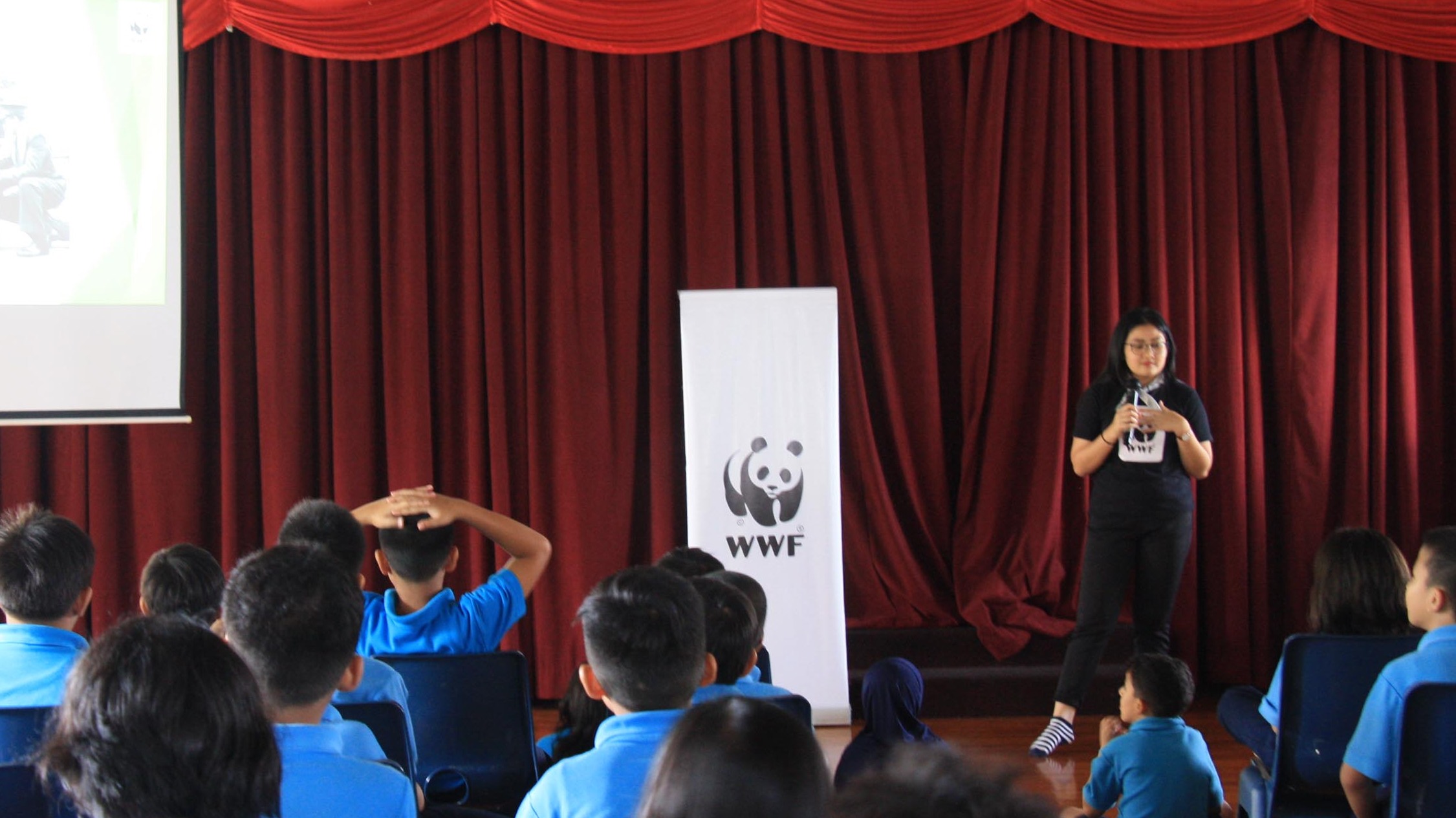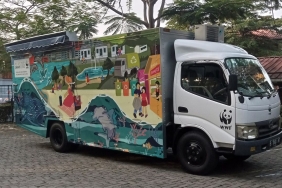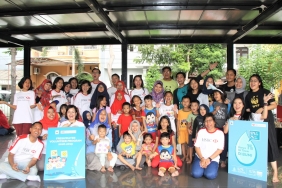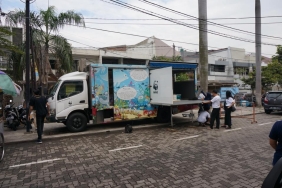PANDA MOBILE AND AL-JABR ISLAMIC SCHOOL STUDENTS LEARN ABOUT PANGOLINS
On Monday (08/04), the Panda Mobile team visited Al-Jabr Islamic School in Pondok Labu. On this occasion, the Panda Mobile team assisted the endangered species pangolin project carried out by 5th grade elementary school students. The Panda Mobile team was asked to assist in explaining the results of pangolin research to students in grades 2, 3, and 4.
Previously, the pangolin project was done by three 5th graders, Zavira, Taha, and Zio. They conducted research by visiting several places and institutions. One of the research locations was Ragunan Zoo to see pangolins in person. They also visited the Ministry of Environment to learn about regulations on animal trade. Finally, the little researchers visited WWF-Indonesia to learn about endangered species in general, and to deepen their knowledge about pangolins.
Based on their research, the students concluded that pangolins are one of the most sought-after animals in the global market. Apparently, this species is traded for its body parts, such as meat, tongue, skin, and scales. Pangolin body parts are believed to be a traditional medicine for the Chinese people, and also as raw materials for narcotics, psychotropic drugs, and illegal drugs.
After all the data and facts had been collected and processed, the three researchers had to present their findings to students in grades 2, 3 and 4. The researchers tried to explain the results of their research and hoped that the younger classmates would understand and be able to take away the implied message. After the presentation session from the researchers, it was WWF-Indonesia's turn to introduce themselves. The Panda Mobile team represented by Kak Hanna explained about endangered species in Indonesia. Kak Hanna also added information about pangolins to the students. She talked about how pangolins adapt to their environment, their efforts to protect themselves from threats, and the difference between pangolins and armadillos.
This first activity ended with a question and answer session between the students and the Panda Mobile team. As it turned out, the audience of 2nd, 3rd and 4th graders listened to the whole presentation. Participants quickly grasped the essence of the research results. They learned that keeping and trading pangolins is prohibited, and can be reported to the authorities.
The event continued with a game to test the students' knowledge about pangolins. Participants were invited to play pangolin snakes and match questions and answers about the animal. All the children played enthusiastically. During the game, a student said, "Why do so many people hunt pangolins? Whereas beef is more delicious to eat." This made the other students laugh.
In addition to playing, the students were also invited to watch several movies on the Panda Mobile truck. The movie was Quartet at The Crossroads, which tells the story of Indonesia with its rich flora and fauna. However, one day the forests were cut down by irresponsible people causing many animals to lose their homes. After the first movie ended, the Panda Mobile team also reminded us that pangolins are among the animals that will lose their homes if forests are destroyed. So, the community, government and organizations like WWF-Indonesia must be committed to preserving nature.
The next movie to be screened on the Panda Mobile truck was titled Plastic Planet. It tells the story of a world filled with plastic due to over-consumption of plastic. Due to plastic waste, marine animals die and the environment is damaged. To prevent this, people living in urban areas can take concrete actions such as using cloth shopping bags or paper bags, and carrying tumblers to reduce consumption of bottled mineral water.
The Panda Mobile team hopes that the activity can provide positive benefits to students and schools. Hopefully, events like this will run regularly and can be an alternative learning medium for students.





